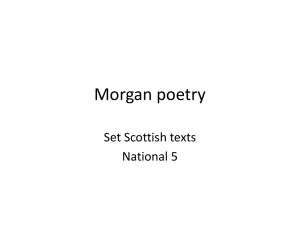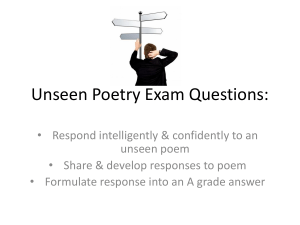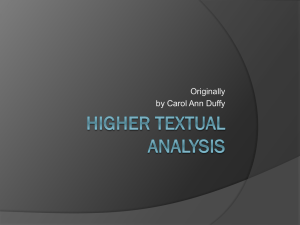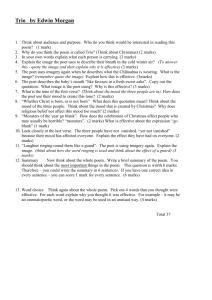Good_Friday_SF_
advertisement
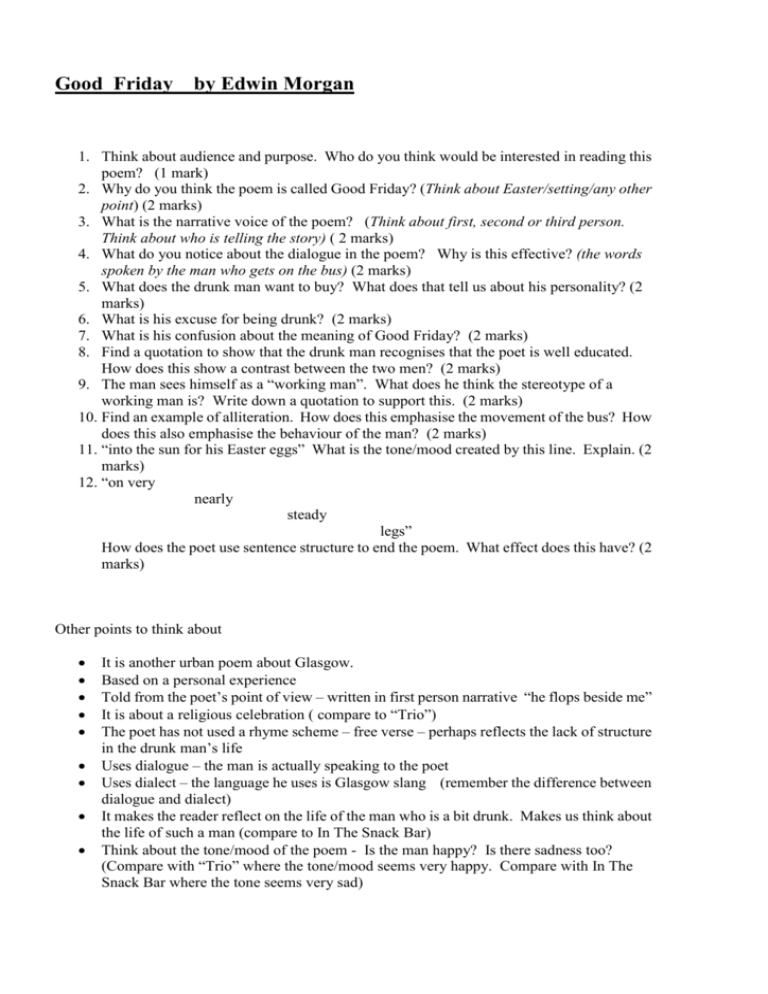
Good Friday by Edwin Morgan 1. Think about audience and purpose. Who do you think would be interested in reading this poem? (1 mark) 2. Why do you think the poem is called Good Friday? (Think about Easter/setting/any other point) (2 marks) 3. What is the narrative voice of the poem? (Think about first, second or third person. Think about who is telling the story) ( 2 marks) 4. What do you notice about the dialogue in the poem? Why is this effective? (the words spoken by the man who gets on the bus) (2 marks) 5. What does the drunk man want to buy? What does that tell us about his personality? (2 marks) 6. What is his excuse for being drunk? (2 marks) 7. What is his confusion about the meaning of Good Friday? (2 marks) 8. Find a quotation to show that the drunk man recognises that the poet is well educated. How does this show a contrast between the two men? (2 marks) 9. The man sees himself as a “working man”. What does he think the stereotype of a working man is? Write down a quotation to support this. (2 marks) 10. Find an example of alliteration. How does this emphasise the movement of the bus? How does this also emphasise the behaviour of the man? (2 marks) 11. “into the sun for his Easter eggs” What is the tone/mood created by this line. Explain. (2 marks) 12. “on very nearly steady legs” How does the poet use sentence structure to end the poem. What effect does this have? (2 marks) Other points to think about It is another urban poem about Glasgow. Based on a personal experience Told from the poet’s point of view – written in first person narrative “he flops beside me” It is about a religious celebration ( compare to “Trio”) The poet has not used a rhyme scheme – free verse – perhaps reflects the lack of structure in the drunk man’s life Uses dialogue – the man is actually speaking to the poet Uses dialect – the language he uses is Glasgow slang (remember the difference between dialogue and dialect) It makes the reader reflect on the life of the man who is a bit drunk. Makes us think about the life of such a man (compare to In The Snack Bar) Think about the tone/mood of the poem - Is the man happy? Is there sadness too? (Compare with “Trio” where the tone/mood seems very happy. Compare with In The Snack Bar where the tone seems very sad)


